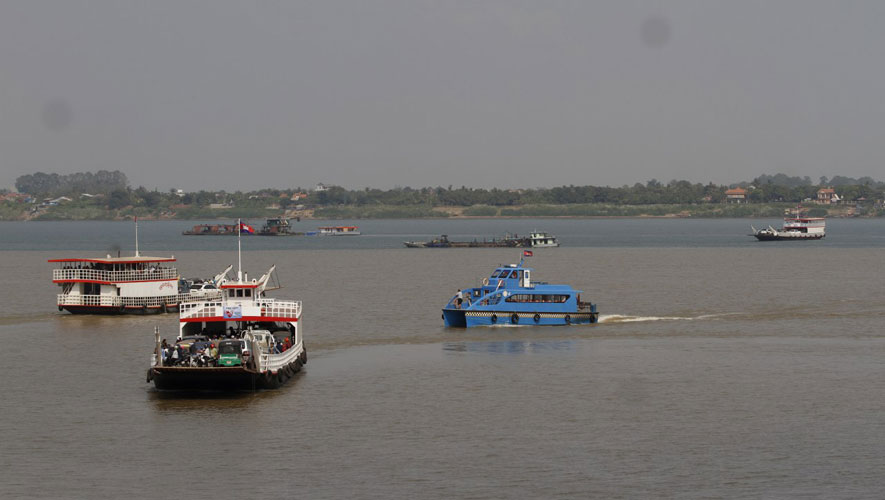Cambodia Securities Exchange-listed Phnom Penh SEZ Plc is expected to see a 50 percent boost in non-land revenue by 2023 by shifting its business model to more service-based, and setting up its new special economic zone (SEZ) in Poipet.
For the latest Cambodian Business news, visit Khmer Times Business
The group, which owns the 360 hectare-PPSEZ in the outskirts of the city, is confident of capturing more manufacturing, electronic and higher value-added industries in the next five years.
“As a developer, we have the advantage of doing business. We are changing our model to include services rather than selling or leasing land. We foresee non-land sales revenue to rise 50 percent in 2023 from 20 percent now,” Hiroshi Uematsu, chief executive officer of PPSEZ tells Capital Cambodia at the group’s annual general meeting.
“We capture much manufacturing because we can supply (uninterrupted) electricity, labour, and service such as construction, security, and accounting. We also developed a business opportunity of operating service apartments in the zones,” Uematsu adds.
Currently, some 80 percent of PPSEZ’ revenue is from land sales while the remaining 20 percent is from non-land sales such as rental income, construction income, and service-rendered income.
Based on its annual report for the financial year ended December 31, 2018 (FY18), net profit grew 72 percent to $2.9 million on the back of $14.8 million revenue, up 61 percent, from $9.1 million a year ago.
“This great momentum is likely to continue in the first quarter of FY19, considering the fact that we still have 60 percent of 41 hectares of land left in our SEZs. The land transaction with Hong Kong-listed Marvel Garment Co Ltd is likely to be recognised in this quarter. As such, we expect net profit to be about $6.4 million for this year,” he says.
However, the good run in net profit over the past three years is not expected to last. The group anticipates a slow growth in profit till 2023 as it has to pay profit tax following the end of its three-year tax incentive last year.
For FY20, net profit is projected to be $3.8 million, $4.8 million in 2021, $5.3 million in 2022, and $5.8 million in 2023.
Its SEZ land expansion both in Phnom Penh and the opening of Poipet in a bid to diversify its business would ensure a sustainable income in the coming years, he says.
The economic zone in Phnom Penh with its own power station, is 95 percent full with some 100 factories including garment, food and beverage, manufacturing and industries located there, which makes its 100 hectares land expansion in Phnom Penh crucial to growing demand.
To date, the total value of investment in the PPSEZ has been more than $500 million.
“Our export value last year was over $400 million which marks the highest sum compared to the other SEZs in Cambodia,” Uematsu says.
Poipet SEZ measuring 70 hectares is located close to the border of Thailand.
“We are developing it in two phases. In the first phase, we are spending around $20 million including land. We have spent $15 million so far. The second phase will be developed step by step,” he adds.
Currently, Japan-based Sumitronics Manufacturing (Cambodia) Co Ltd, which makes printed circuit boards for automobiles, office printers and air conditioners, operates in Poipet SEZ.
“Although we target electronic and high value-added industries to relocate here, we are aware of our promixity to Thailand which has a large number of such industries.
“We don’t aim to set up a major production base in Cambodia. We aim to separate it. This means that the major production function remains in Thailand but labour intensive activities are in Poipet. So, the products in Cambodia can integrate with Thailand. It is called production network,” Uematsu says.
The Poipet SEZ has proper infrastructure, with offices, a water treatment plant, and factory units to rent.
“We hope to raise our recurring income. Poipet has potential to become a manufacturing site. For now, it is famous for casinos,” he says.
Meanwhile, PPSEZ does not consider other SEZs in the country such as Sihanoukville SEZ a competitor because it targets different market segments.
However, he welcomes Chinese investors to lease its land and operate in PPSEZ but the companies must be of international standard.
Fifty-five percent of the companies in PPSEZ are from Japan, China, Taiwan, Hong Kong, Thailand, Vietnam, Malaysia and Philippines.
“We always conduct due diligent checks on companies including visiting the main operation at its base before we approve investors. We want to avoid runaway factories and protests by workers,” Uematsu says.
He cites Marvel Garment, its latest investor, which makes global sportswear brands Nike and Adidas as having met international standard criteria.



